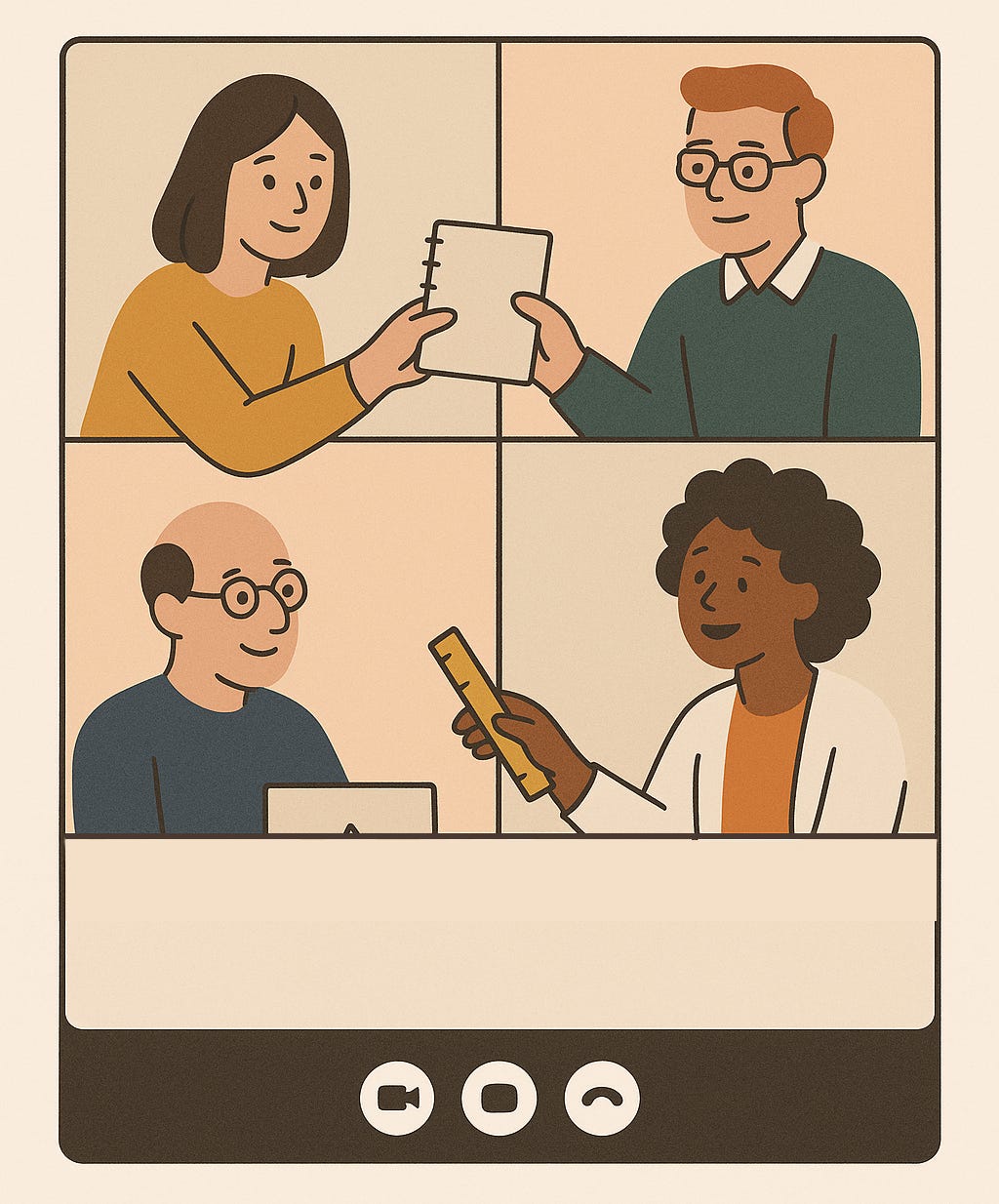"AI should never replace human interaction and connection"
Arizona AI Alliance hosts conversation about AI's role in student development
Educators should continue to model the practice of placing humans at the center of their efforts, even in technology-forward classrooms.
ChatGPT Prompt: A minimalist, flat-style digital illustration of a Zoom video call in portrait orientation. Four educators appear in a 2x2 grid, each in their own video panel. They are breaking the fourth wall by reaching out of their panels to share educational resources like notebooks, rulers, and worksheets with one another. The interface is simple with no text, and the background features warm, soft tones.
By Jake Kelly, MA
There's a reason that education as an institution has never really taken to just handing kids books off the shelf until they learn how to read, or saying "now that you've got a calculator, you should be able to take it from here." The best version of education is human-centered, with teachers and students at its heart–that's even true as AI becomes more powerful and tech CEOs start claiming teachers are going to be out of a job.
Mica Mulloy, one of our co-conspirators in the Mindful AI revolution, was invited to speak with education leaders across Arizona as part of the Arizona AI Alliance “Thorny Topics” series. In that conversation, Mica and two other esteemed panelists, Dr. Punya Mishra and Dr. Kristen Mattson, discussed the effects of AI access on students, talking about the roles of chatbots, the value of AI tutors, and the implications for mental health.
“AI should never replace human interaction and connection. It should either supplement it or facilitate it, but not take the place of it.” - Mica Mulloy, Mindful AI for Education
During the conversation, Mica said "AI should never replace human interaction and connection. It should either supplement it or facilitate it, but not take the place of it."
Teachers and students have found innumerable benefits to using AI in their education practices, but putting too much faith in the role that AI will play without human involvement and decision-making is a step too far.
This week, we encourage you to click here and tune into this fascinating conversation between three thought leaders in the Arizona AI and Education landscape.
What do you think is the appropriate balance of AI in the classroom? In what ways is AI hindering or helping your students in developing as critical thinkers? Leave a thought in the comments.




This totally resonates with me. It’s not about being skeptical regarding AI (how could one be?) but rather about being smart on how to implement it and knowing where it can have the biggest impact… and where it’s maybe not so clever. I think AIs aren’t that great at keeping students accountable (unless the students explicitly requests that which is the rarest case): this is a key part of education and it’s deeply intertwined with human connection.